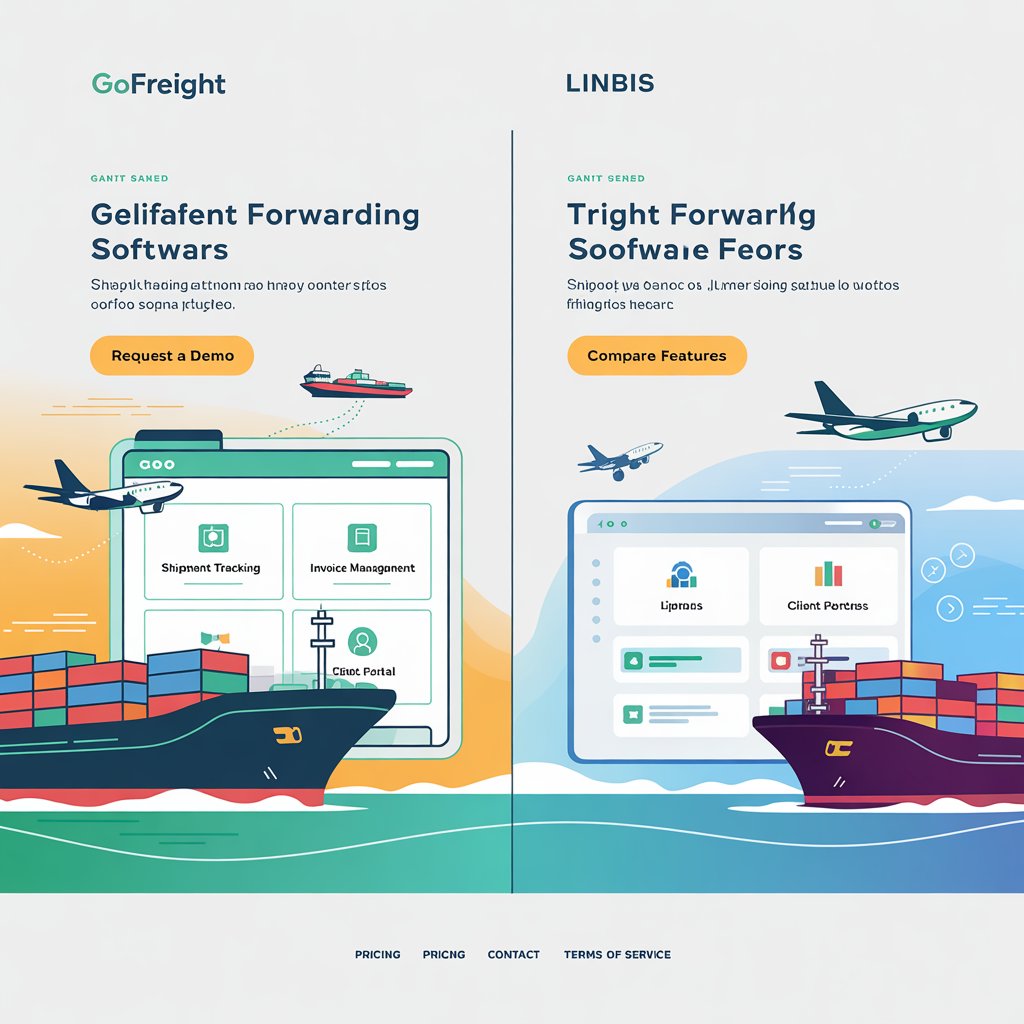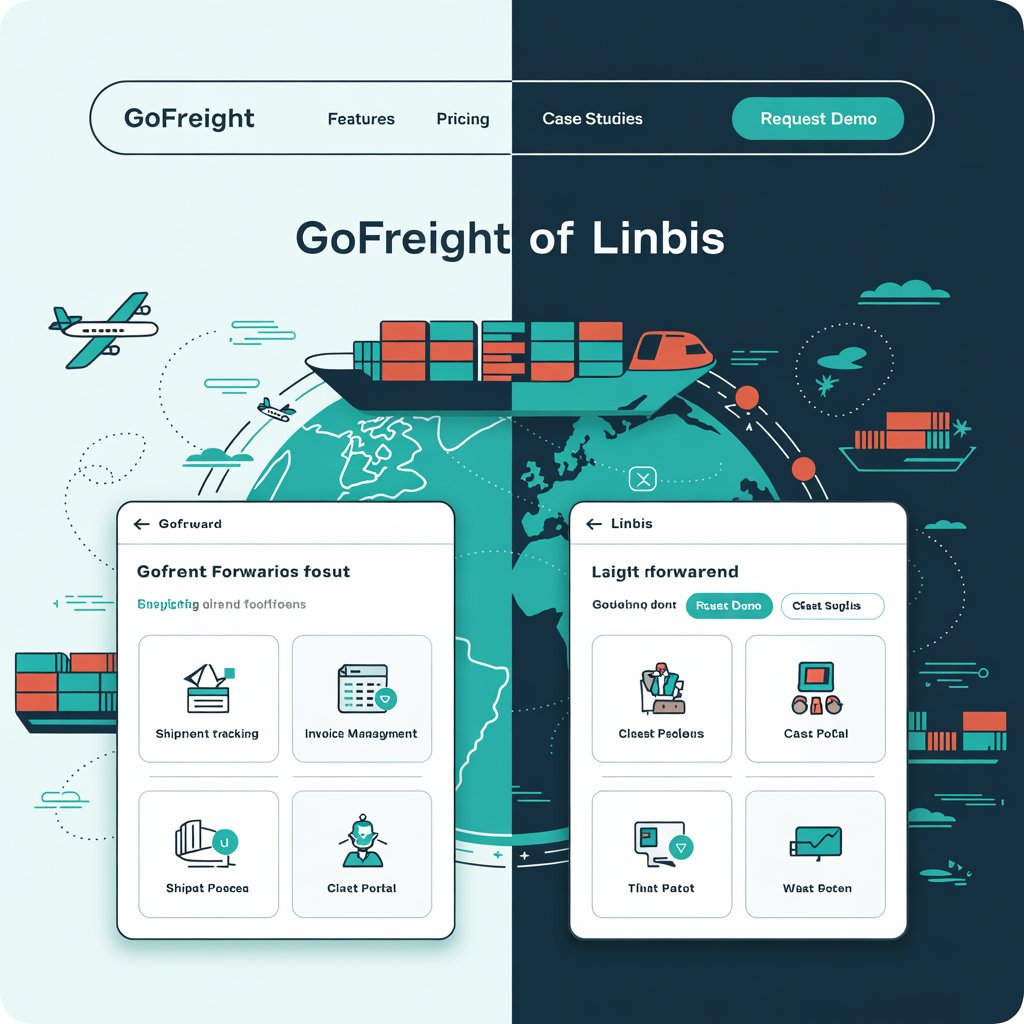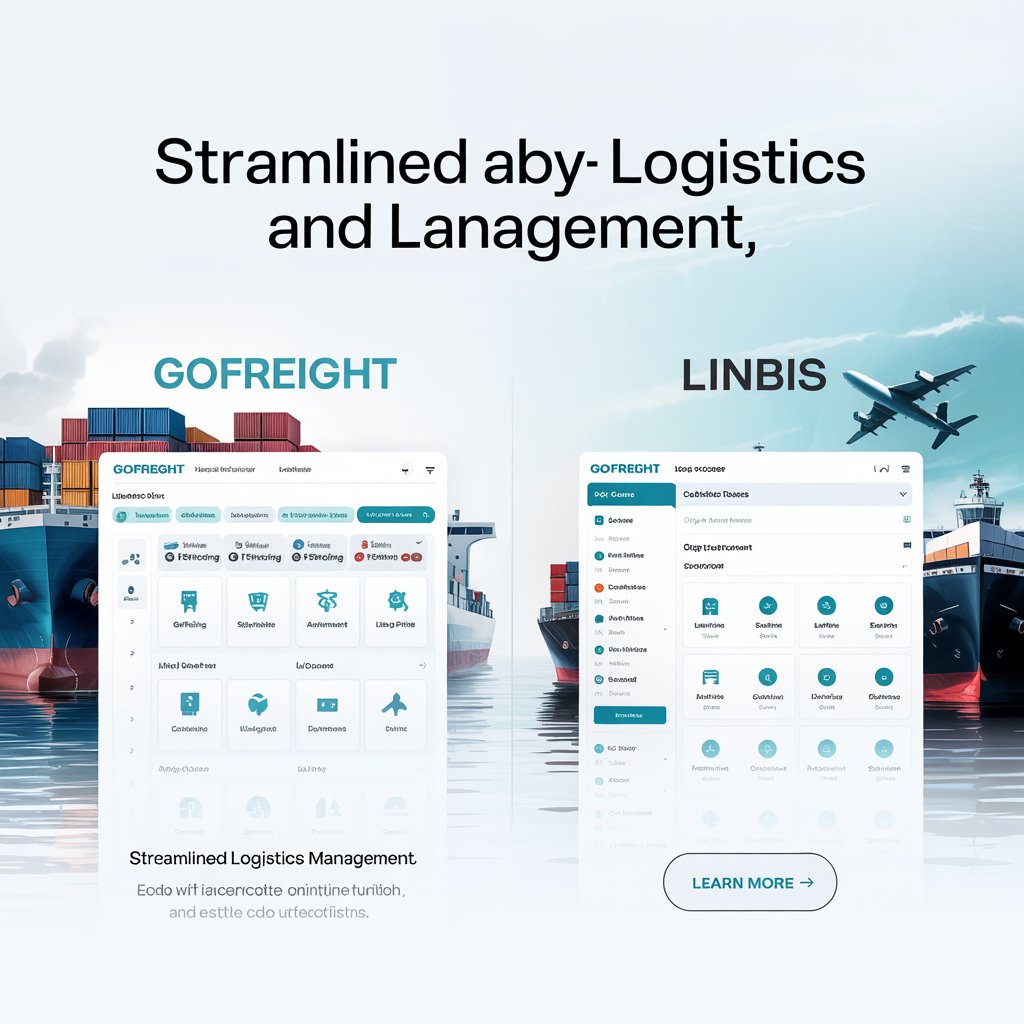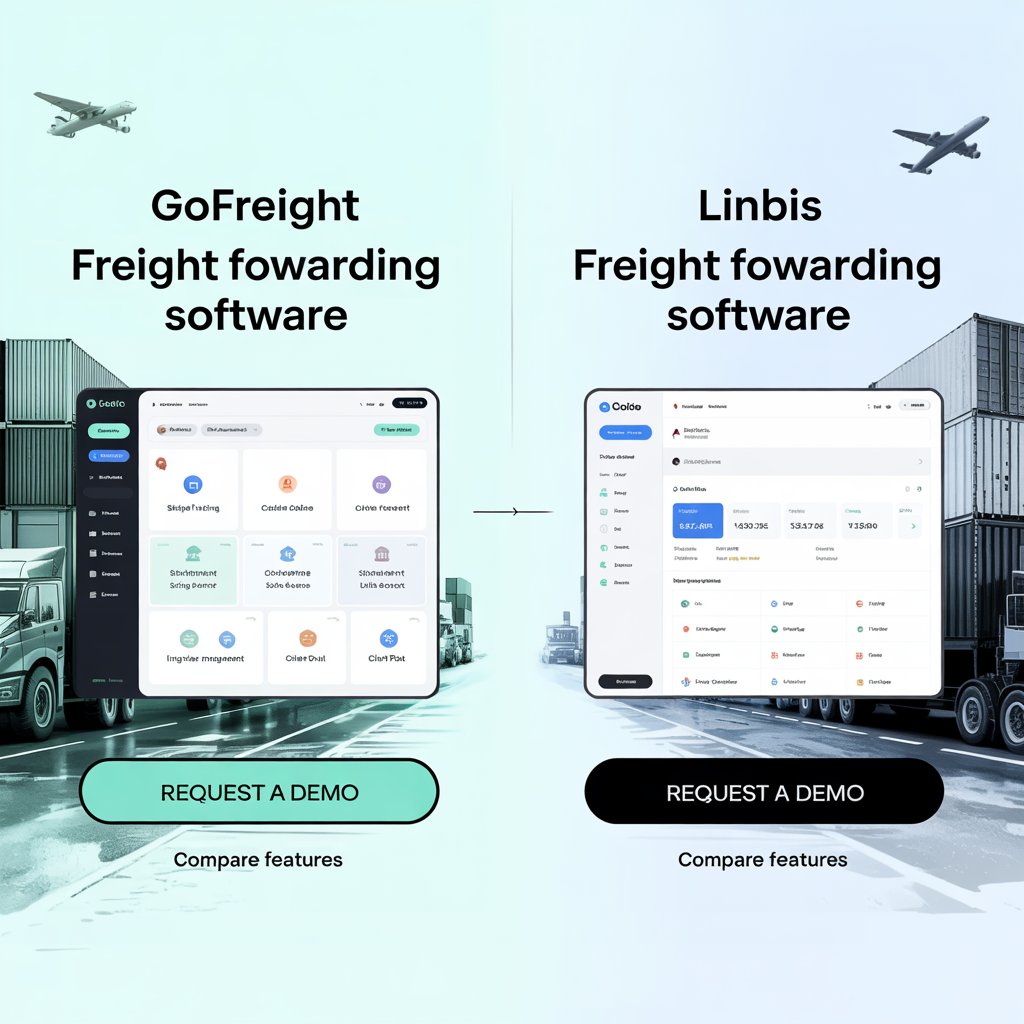GoFreight vs. Linbis: Feature-by-Feature Comparison
But which one is the right fit for your business?

📋 Overview Comparison Table
Category | GoFreight | Linbis |
Deployment | Cloud-based SaaS | Cloud-based SaaS |
Interface | Sleek, modern UI | Clean, intuitive dashboard |
Target Market | Small to mid-size freight companies | SMBs, independent forwarders, brokers |
Feature Focus | All-in-one ops + client visibility | Streamlined freight ops + automation |
CRM & Client Tools | Yes – With customer portal | Yes – Integrated CRM & shared portal |
Pricing Transparency | Quote-based | Transparent pricing tiers |
API Integration | Limited (custom quote needed) | Open API, flexible integrations |
Accounting Module | Native module | Integrated invoicing + QuickBooks |

🔍 1. Freight Operations Management
GoFreight
Designed for modern logistics workflows, GoFreight offers modules for ocean, air, and trucking, with shipment tracking and document management tightly integrated. Strong visibility tools enhance the customer experience.
Linbis
Linbis streamlines core freight workflows—quote, book, track, invoice—into one intuitive system. Its flexibility makes it ideal for growing teams without complex tech setups.
🤝 2. Customer Collaboration
- GoFreight: Offers a custom-branded customer portal where clients can view shipments and documents. The interface is polished and user-friendly.
- Linbis: Provides a collaborative CRM with user-level permissions, allowing customers and vendors to log in, access documents, and even initiate bookings.
🟢 Linbis is slightly more open with client interaction customization, especially for SMBs.

🔧 3. Integration Capabilities
- GoFreight: Integrations are available, but typically require custom quotes or support assistance.
- Linbis: Offers an open API for easy integration with third-party CRMs, accounting tools, and logistics partners.
🟢 Linbis has a clear edge here in terms of flexibility and API access.
💰 4. Pricing & Affordability
- GoFreight: Pricing is available on request and often tailored based on the size and complexity of the operation.
- Linbis: Offers affordable, transparent pricing—making it accessible to startups and small forwarders without compromising on power.
🟢 Linbis wins on clarity and cost-effectiveness, especially for early-stage businesses.
📈 5. Scalability & Support
- GoFreight: Built to scale, but focused more on firms already established in freight operations.
- Linbis: Scales easily with your team size and workflow needs. Support and onboarding are fast and personalized.

🎯 Final Verdict GoFreight vs Linbis : Which Should You Choose?
Choose GoFreight if you: | Choose Linbis if you: |
Want a polished UI with client visibility tools | Need fast deployment with low overhead |
Run mid-sized operations with air & ocean focus | Are a small-to-mid freight forwarder or broker |
Don’t mind working through a sales quote process | Want transparent pricing & open integrations |
🚀 Closing Thoughts
While GoFreight offers a solid, polished experience, Linbis stands out as a flexible, user-friendly, and cost-efficient solution—especially for businesses looking to scale smartly.
If simplicity, automation, and affordability are your top priorities…
👉 Linbis may be exactly what you’re looking for.
